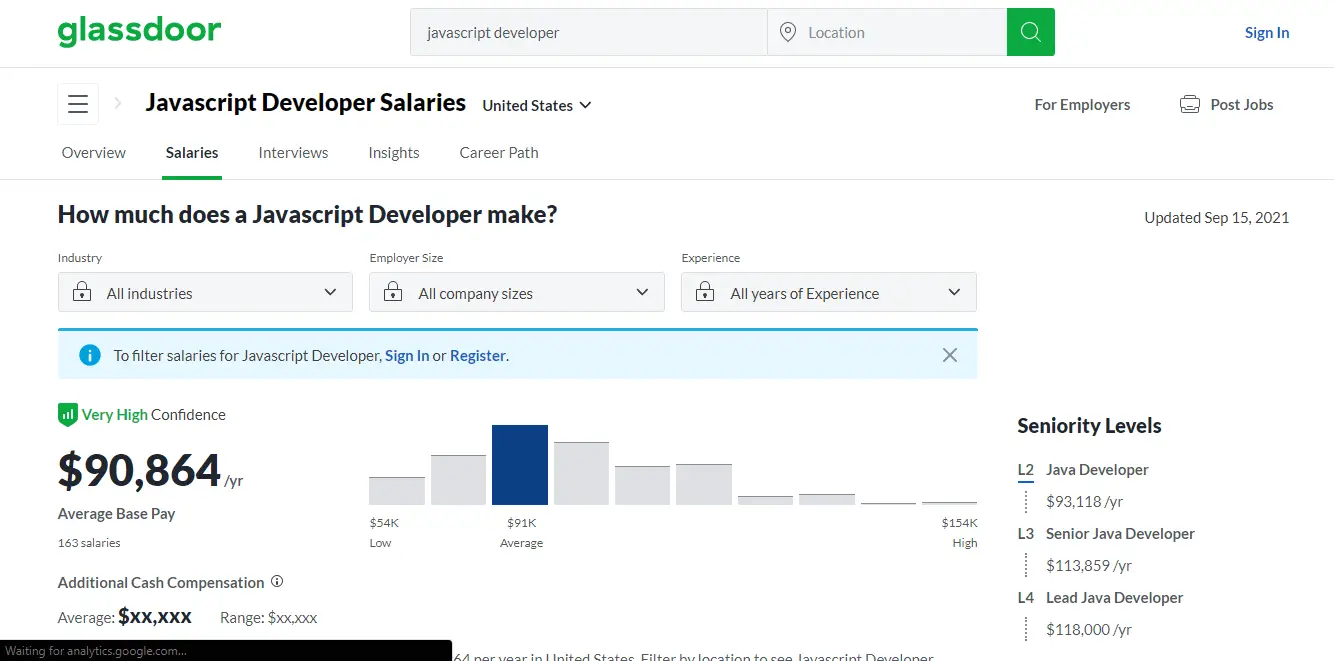The global IT industry enjoyed massive growth in the wake of the Covid-19 epidemic as more and more companies saw the increased need to take their business online and compete on a global scale. There is a demand for programmers who can work on various platforms and use flexible programming languages like Java.
- Inflated Demand for Java
- High Salary
- Beginner-supportive and Relatively Easy to Learn
- There Are a Lot of Useful Sources to Learn Java
- Java is a Cross-Platform Programming Language with Very Few Limitations
- There Are Numerous Publicly Available Libraries at Hand
- Wide Range of Development Tools
- The community Is Ever-growing, Active and Supportive
- Wrap Up
Reason #1. Inflated Demand for Java
Based upon a survey by Stack Overflow in 2021, Java is the fifth most popular language worldwide. It owes its reputation to its flexibility, age, and reliability. Sun Microsystems designed it as an easy-to-learn general-purpose language for everything from app development to web development.
Java was originally launched in 1995 and holds up so well that it’s still widely used till date. Most backend web applications and mobile games you see still rely on Java. In fact, it powers Android, the most popular mobile operating system in the world.
If you are wondering whether you should consider learning Java with CodeGym or any other online resource, you might want to read through to the end.
Reason #2. High Salary
According to Glassdoor, the average Java developer earns about $93,118 a year. That is well above the average real median income, as FRED informed. As you rise through the ranks, you can expect to earn up to $100,000 or even higher if you make Senior or Lead Java developer.
Java Developer Salary from Glassdoor.com
Compared to other programming languages, Java pays well, too. Both JavaScript and Python pay $90,000, but that is not always the same in every market. Regardless, learning Java will land you a safe and reliable job.
Reason #3. Beginner-supportive and Relatively Easy to Learn
Next to Python, Java is arguably one of the easiest programming languages you can learn. It has a similar syntax to English, making the beginning stages easier to grasp. It also uses object-oriented programming to help you maintain and modify existing codes and start real-time projects that dramatically improve your skill while you’re at the beginner stage.
Java also has advanced memory management tools that help you manage memory allocation, deallocation, and reallocation through a built-in feature called the Garbage collector.
Reason #4. There Are a Lot of Useful Sources to Learn Java
There are no shortages of resources to pull from as a beginner trying to learn Java. You can start with YouTube and type in ‘Java tutorial’ to get a basic look at how everything is supposed to work. Then, when you want to get more serious, you can visit CodeGym. They provide a more hands-on, interactive, and fresh way to learn Java and its various uses.
You can also consult some of the most popular coding blogs on the Internet like HackerNoon, Live Code Stream, CSS- Tricks, and A List Apart.
Reason #5. Java is a Cross-Platform Programming Language with Very Few Limitations
Java is a cross-platform programming language, meaning you can code it on a Linux computer and seamlessly port it over to a Windows, and it’ll run just fine. Java was designed to run on the Java Virtual Machine and installed on most systems irrespective of their operating systems.
This, along with its API, online libraries, and versatility, is why it can be used to build virtually everything. You will find Java in Big Enterprise server apps, android apps, web apps, server apps for financial industries, Internet of things, Big Data technologies, and Machine learning. The sky’s the limit for what you can do with Java.
Reason #6. There Are Numerous Publicly Available Libraries at Hand
One of Java’s biggest advantages is its abundant and comprehensive source core library. However, if it is not enough, you can draw from the numerous professional-level open source libraries available on Java. It supports Apache Commons, Google Guava, Maven, Jackson, JAXB, Log4j2, and dozens of other libraries.
With them, you can start building beginner-level and small-scale projects nearly immediately at no extra cost.
Reason #7. A Wide Range of Development Tools
Java does not lack development tools either. Like most programming languages, it supports a few development tools, which make creating applications, websites and completing projects easier. For backend developers, there are tools like IntelliJ, Eclipse, and NetBeans. Android developers can use Android Studio, Your kit, Find Bugs, etc.
Reason #8. The community Is Ever-growing, Active and Supportive
Java is over 25 years old and has one of the oldest, richest, and most supportive online communities on the Internet. Online communities, forums, and groups are essential to a budding Java developer’s growth and development. They provide answers to questions, problems and might even present you with opportunities to gain employment.
Stack Overflow is a great place to start if you need help, guidance, or are just looking to chat. Check out tagged questions on Java, and you can ask questions. Before you post a problem or ask a question, consult their backlog for answers. They might have covered your particular problem in the past.
Reddit is another great place to throw questions, follow discussions, new happenings and share insights. Thecodingforums.com, Github, and Javaprogrammingforums.com are also great resources you can consult.
Wrap Up
Java is a time-tested and reliable programming language with a supportive community, loads of free and interactive resources, and is relatively easy to learn. It is very diverse, giving you the opportunity to thrive in whatever field you want to specialize in.
Regardless of whether you’re new to programming or you already have a few programming languages under your belt, learning Java with CodeGym or other online resources is a worthy investment. It’s never too late to start learning.


